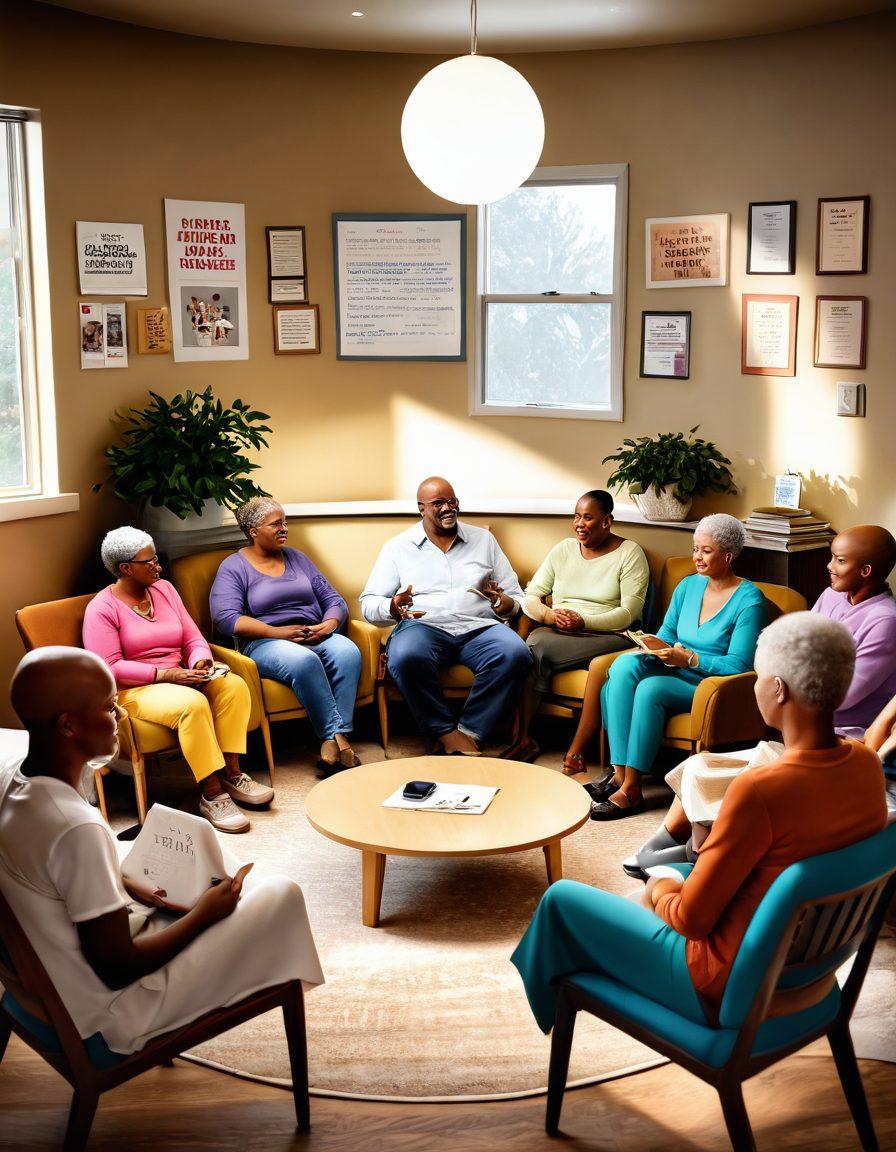Navigating Your Journey: Comprehensive Insights into Oncological Surgery and Patient Support
In the complex world of healthcare, oncological surgery stands out as a critical pillar in the fight against malignant diseases. This form of surgical procedure encompasses a variety of techniques aimed at removing tumors to provide patients with the best chance of recovery. But as we dive deep into this realm, one question lingers: What really happens from the operating room to post-surgical care? Buckle up as we unveil the essentials of oncological surgery and explore how it ties into comprehensive patient support, turning an intimidating process into a journey of hope and healing.
Picture this: a patient diagnosed with cancer sits in a doctor's office, heart racing, surrounded by pamphlets and buzzwords like chemotherapy, radiation therapy, and clinical research. The fear of the unknown can be crippling. That's where oncologist advice becomes invaluable. With a focus not only on tumor removal, but also on personalized medicine and health awareness, these specialists guide patients through their treatment options, ensuring they understand every step. It's about putting the power back in their hands and transforming anxiety into informed action.
Once the decision to undergo oncological surgery is made, the spotlight shifts to the surgical procedures that will take place. Surgery is not just about the physical act of removing a tumor; it’s about providing a thorough approach to cancer care. The role of patient education cannot be overstated: knowing what to expect from a procedure allows patients to mentally prepare for recovery. Patients are often encouraged to engage in wellness strategies and participate in survivorship programs that help them adjust to life after surgery, learning that their journey is far from over but filled with possibilities for a healthier future.
In tandem with oncological surgery, the importance of support networks cannot be ignored. Cancer support groups provide invaluable emotional resources. Imagine a space where individuals share their stories, each one a testament to resilience in the face of adversity. They discuss challenges, triumphs, and they lift one another up. With healthcare evolving, these groups offer a combination of health guidance and peer support, becoming fundamental in creating comprehensive patient care. They intricately weave a community where no one feels alone in their struggle with malignant disease treatment.
As we navigate through this intricate pathway of oncological surgery, let's not forget the ongoing journey after the operation. Clinical research is constantly evolving, offering new insights into treatment options that improve long-term outcomes. Patients need to stay engaged in their health journey, seeking out patient resources and educational materials to remain informed. After all, the road to recovery may seem daunting, but with the right support systems, information, and wellness strategies in place, patients can foster a hopeful mindset towards a brighter future. Remember, life is not just about surviving cancer; it’s about thriving after it.
Empowering Patients: The Role of Support Groups and Resources in Navigating Cancer Treatment
Navigating the tumultuous waters of cancer treatment can feel overwhelming, but there’s hope on the horizon. Imagine facing a diagnosis like malignant disease with a substantial support system by your side—a community ready to empower you through the storm. Support groups play a pivotal role in this journey, providing tools, emotional strength, and crucial patient resources that transform what may seem like a solitary fight into a united effort toward healing. Let's explore how these groups can be your guiding light when faced with the complexities of oncological surgery and treatment options.
When discussing surgical procedures, we often focus solely on the technical aspects, like tumor removal. However, the emotional journey is equally, if not more, important. Have you ever wondered how many lives are impacted not just by cancer but by the isolation that often accompanies it? Cancer support groups create an environment where patients can share their experiences, exchange health guidance, and find solace in knowing they are not alone. As one cancer survivor put it, ‘The scariest part of my journey wasn’t the chemotherapy; it was feeling like I was facing it all by myself.’
Engaging with these support groups can present a myriad of benefits, from patient education resources to wellness strategies that complement medical treatments like radiation therapy and chemotherapy. Clinical research reveals that patients who participate in these networks experience better emotional and physical health outcomes. So, why not take that step and seek guidance from those who have walked a similar path? Empowerment in cancer care is about sharing stories, advocating for your needs, and utilizing personalized medicine to tailor your journey.
Moreover, let’s not overlook the importance of survivorship programs. These initiatives act as vital lifelines, teaching skills to manage post-treatment life. How can we ensure that wellness strategies remain part of our everyday routines? By tapping into the knowledge shared in cancer support groups, patients can cultivate holistic health—embracing both physical and emotional healing. Asking questions and seeking oncologist advice within these circles can open doors to innovative treatment options that may have otherwise gone unexplored.
In a world where health awareness is paramount, we must recognize that navigating cancer treatment is a marathon, not a sprint. It is essential to reach out and lean on community resources that offer a multitude of insights to empower one another. Whether you find solace in local meet-ups or connect with others online, remember, you are in charge of your journey. By embracing the power of cancer support groups, you lay a foundation for not just surviving cancer but thriving beyond it. After all, cancer is just one chapter of your story—make sure to write a compelling one!
Exploring Innovative Treatment Options: A Guide to Surgical Procedures, Chemotherapy, and Personalized Medicine
In recent years, the landscape of oncological surgery has dramatically evolved, opening doors to innovative treatment options that were once mere aspirations. The journey through cancer care can feel much like a rollercoaster—full of ups and downs, twists and turns. When faced with a malignant disease diagnosis, the array of choices, from surgical procedures to chemotherapy, might seem daunting. But fear not! In this exploration, we will break down these treatment options, spotlighting the importance of personalized medicine and how healthcare advancements are reshaping patient outcomes.
Imagine standing at the crossroads of treatment options and feeling paralyzed by the weight of the decisions ahead. It's important to remember: you are not alone on this journey. Speaking with your oncologist about surgical methods, such as tumor removal, is just the beginning. Engaging in heartfelt conversations with healthcare professionals can pave the way for informed choices. What if a personalized medicine approach offered a beacon of hope specifically tailored to your unique situation? This is where the magic of oncology meets patient education, empowering individuals with knowledge and instilling confidence in their treatment journey.
As the healthcare landscape continues to evolve, our understanding of oncological surgery and other cancer therapies deepens. The fusion of clinical research and technology is not just a trend; it’s the future of cancer care. Patients often wonder if they should prioritize preventive medicine or sit on the sidelines. But in a world where holistic health is gaining traction, embracing wellness strategies that include not only surgical interventions but also radiation therapy and chemotherapy is crucial. Patients who nourish their minds and bodies during treatment can experience more favorable outcomes.
Engaging with cancer support groups can make a world of difference in navigating your journey through oncological surgery and treatment options. Here, stories are shared and hearts are connected. Imagine hearing from a survivor who recounts their experience with personalized medicine after their tumor removal. These anecdotes, rich in hope, speak volumes about the potential of modern therapies. Could it be that the best patient resources lie within the shared wisdom of others who have walked the same path?
Lastly, remember that survivorship programs exist to support you long after treatment concludes. Many patients believe the journey ends with the conclusion of their oncological treatments, but that’s just the beginning of a new chapter in wellness. How can we inspire health awareness among ourselves and our communities so that the conversation around malignant disease treatment remains alive? The road might be challenging, but by harnessing the power of patient education and engaging in a trustworthy medical blog that explores treatment options, we cultivate a network of support and resilience.


